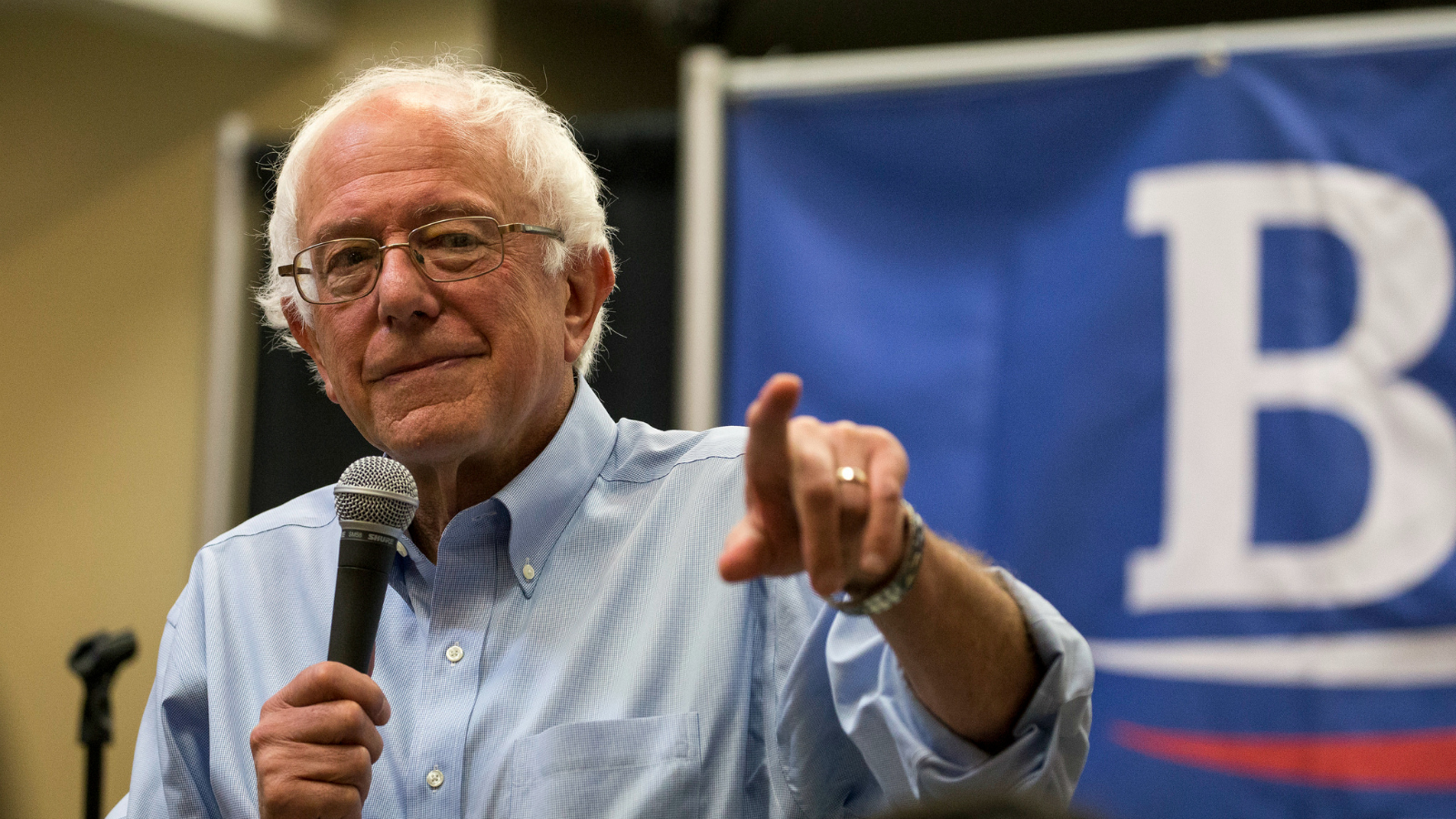Bernie Sanders wants to halt fracking not just on public land but on private land too. How would he actually do that? Grist talked to the Sanders campaign to get previously unreleased specifics about the kinds of strategies he would use if he makes it to the Oval Office.
Sanders hasn’t proposed eliminating conventional oil and gas drilling or coal mining on private land, but he believes that hydraulic fracturing, AKA fracking, is especially problematic. It involves injecting secret chemical brews at high pressure deep into the earth to unleash previously inaccessible deposits of gas and oil, a process that can contaminate local air and water and even cause earthquakes.
Sanders recently called for passing a law that would dramatically scale back fracking on private land by closing the so-called “Halliburton loophole” that exempts fracking operations from the Safe Drinking Water Act. That change would allow EPA to regulate what’s in fracking fluids and how they are used. But, like so many of Sanders’ proposals, this anti-fracking measure would stand no chance of passing Congress, as the House is sure to stay in Republican hands and the Senate might too. Sanders didn’t publicly offer a list of backup plans for cracking down on fracking through executive action, so Grist asked his campaign what he would do about fracking if Congress wouldn’t pass his bill.
The campaign offered up a number of policy proposals a president could enact on his or her own, geared around these basic principles: stop letting fracking operations pollute their neighbors’ air and water, and stop incentivizing a switch in the energy sector from coal to natural gas. Instead of embracing gas as a supposedly cleaner “bridge fuel,” Sanders wants to go straight to renewables.
Here are the six most significant executive actions that a President Sanders would likely take to put the squeeze on fracking and natural gas:
–Change the Clean Power Plan to incentivize renewables instead of gas. The biggest problem with Obama’s signature climate initiative is that it is structured in such a way as to encourage states to shift their power plants from burning coal to gas. It also encourages switching to renewable energy, of course, and during the first two years EPA will provide states with emissions credits specifically for certain renewable investments such as wind and solar projects in low-income communities, through what’s called the Clean Energy Incentive Program. Sanders would extend that program through the CPP’s lifetime, all the way to 2030.
–Regulate methane, not just carbon, through the Clean Power Plan. One of the reasons the CPP implicitly favors gas is that it only measures and regulates carbon dioxide emissions, which come from a power plant’s smokestack when a fossil fuel is burned. By that measure, gas is only half as bad as coal. But when natural gas is extracted through fracking and piped to power plants, methane leaks out, a greenhouse gas that’s 84 times more potent than carbon dioxide over 20 years. So much methane leaks through that studies suggest it totally wipes out the climate advantage of gas over coal. Extending the CPP to cover methane would mean that natural gas is properly assessed for its climate impact.
–Use the Clean Air Act to regulate methane leakage from existing sources and strengthen rules on new sources. Last year, EPA proposed regulation of methane leakage from new sources, such as wells and pipelines. But the vast majority of methane leakage comes from existing sources, so Sanders would have EPA regulate them as well. Sanders also wants to make the EPA’s rules for new sources more stringent.
–Regulate containment of fracking fluid under the Clean Water Act. The fluids injected into the earth in fracking operations don’t just stay down there, they come back up. Typically, they are poured into containment ponds, which can be exposed to the open air and overflow in storms, leak through holes, and so on. Under Sanders, EPA would create rules for safer containment of used fracking fluid.
–Investigate the effects of fracking. EPA has abandoned its studies of the risks of water contamination from fracking. Sanders staffers say that under his presidency, the agency would carefully study the effects of fracking and publicize the results.
–Support state and local efforts to ban fracking. The power of the president’s “bully pulpit” to exhort people to do what he or she wants can be overstated. But if the president publicly highlights the dangers of fracking, praising state and local governments that have banned fracking and encouraging others to follow their lead, it might help at the margins.
These moves would serve the same basic purpose: stop letting natural gas be artificially cheap by sticking the rest of society with the cost for water, air, and climate pollution. By limiting that pollution and requiring gas companies to spend more money on protecting surrounding communities, Sanders would raise the cost of fracking and the gas and oil it produces. “You impact the market through regulatory authority,” says one Sanders aide.
It’s good to know that the Sanders team has these pragmatic plans for grinding out small-bore victories if their wholesale political revolution doesn’t come to pass. Sanders skyrocketed from obscurity to winning the New Hampshire primary largely on the strength of his idealistic legislative proposals like a $15-per-hour minimum wage. His climate and environment proposals are idealistic too. In December, Sanders released an impressive climate action plan that is based heavily on bills that would have to be passed through Congress — and won’t be passed any time soon without a massive partisan and ideological swing in its membership.
Sanders can’t be blamed for talking mainly about his dream legislation. Everyone else does it too. It’s not like a Republican Congress would pass Hillary Clinton’s more modest proposals, or a Senate in which Democrats can filibuster would pass Donald Trump’s massive tax cuts. This is how presidential candidates campaign. Much as it may irritate wonks, most voters want to hear a candidate’s big, unrealistic proposals because it tells them what that person believes in and the direction he or she would take the country.
The question is whether a candidate can also offer concrete policies that are actually achievable. On fracking, Sanders is now showing that he can.



